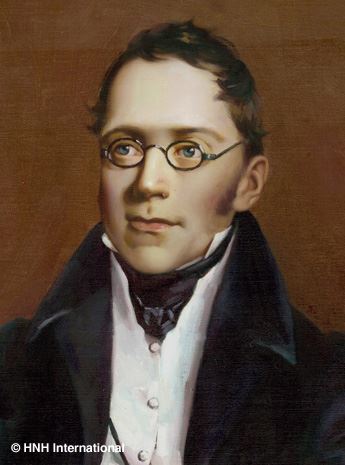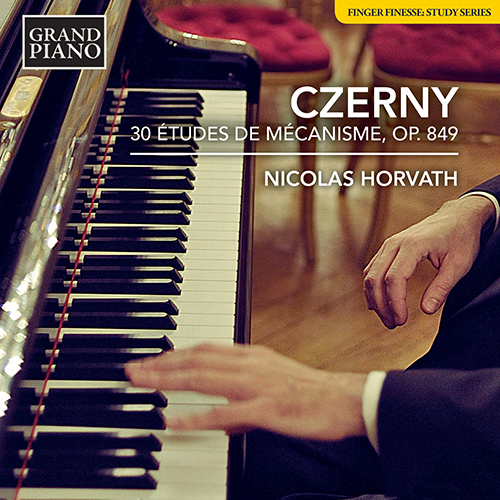
Carl Czerny (1791 - 1857)
Carl Czerny owed much to his father, who trained him as a pianist and musician, concentrating particularly on the works of Bach, Mozart and Clementi. At the age of nine he played for Beethoven, who was happy to accept him as a pupil, his lessons relying in good part on Carl Philipp Emanuel Bach’s essay on keyboard playing, the Versuch über die wahre Art das Clavier zu spielen. In spite of the irregularity of these lessons, Czerny enjoyed Beethoven’s favour and found a continuing source of inspiration in his music, which remained at the heart of his own repertoire as a performer. Attempts to embark on an early career as an infant prodigy, a travelling virtuoso, were eventually abandoned, partly owing to the disturbed political and social events of the time and partly because, as Czerny later pointed out, of his lack of brilliance and showmanship, the element of charlatanry that seemed a necessary concomitant of such a career. With his careful father’s approval, he settled in Vienna primarily as a piano teacher, with pupils that over the years included the boy Liszt, who passed on Czerny’s teaching to a generation of virtuosi, and they, in turn, to their pupils. Impressed as he was by the performance style of Mozart, heard through Mozart’s pupil Hummel, he nevertheless became a leading exponent of the piano music of Beethoven, with its demands for a legato style suited to the newer forms of pianoforte now available. His pedagogical works had, and continue to have, wide currency. While his principal works were in the form of exercises and studies, of which he wrote a very large number, his other piano music consists of Sonatas and Sonatinas, with various medleys, variations and other shorter pieces. He wrote music for piano duet, and for up to six players, with many arrangements and transcriptions, including a number of works by Mozart, Beethoven, Auber, and editions of major composers, including Donizetti. The extent of his work as a composer is reflected in well over 800 opus numbers.


 Grand Piano has gained a reputation for producing high quality recordings of rare keyboard gems. Dedicated to the exploration of undiscovered piano repertoire, the label specialises in complete cycles of piano works by many lesser-known composers, whose output might otherwise have remained unknown and unrecorded.
Grand Piano has gained a reputation for producing high quality recordings of rare keyboard gems. Dedicated to the exploration of undiscovered piano repertoire, the label specialises in complete cycles of piano works by many lesser-known composers, whose output might otherwise have remained unknown and unrecorded.






